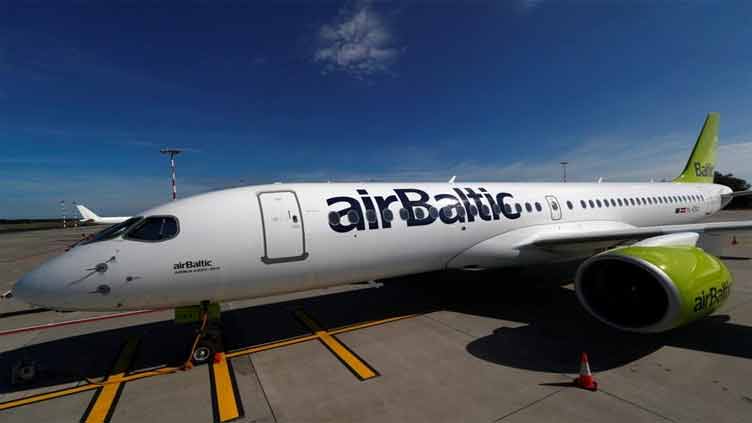AirBaltic in talks to buy 30 more Airbus A220

Business
The move comes as the airline prepares for an initial public offering (IPO) in late 2024
ISTANBUL (Reuters) – Latvian airline airBaltic is in talks with Airbus to buy 30 more A220 passenger jets by exercising existing contractual options, its chief executive told Reuters.
The largest Baltic airline, which has already ordered 50 of the Canadian-developed planes, also plans to add 20 new options, CEO Martin Gauss said in an interview.
The move comes as the airline prepares for an initial public offering (IPO) in late 2024, for which the tentative business plan envisages up to 100 aircraft by 2030.
AirBaltic is the second-largest European customer for the larger of two models of A220, the roughly 130-seat A220-300. It would focus on the same version for the new order.
It would also be interested in an option to convert some of these orders to an even larger version known as the A220-500 if Airbus went ahead with its development, Gauss said.
Airbus has said it is pondering a stretched version of the A220, but last week denied reports that a launch was imminent.
The timing of an order depends in part on the progress of preparations for the planned IPO, Gauss said.
The order will not be ready in time for this month’s Paris Airshow. Gauss declined to say how much could be raised, nor what valuation the IPO would put on the 28-year-old airline. It would be the first significant airline IPO in Europe since Wizz Air’s flotation in 2015.
AirBaltic is among a number of airlines affected by delays in obtaining parts or repairs for the latest generation of engines produced by Pratt & Whitney.
The airline currently has 11 out of 42 A220s - or close to 25 per cent of its fleet - grounded by shortages of spare engines needed to replace those going into routine repair, Gauss said.
It has been forced to rent older jets complete with crews, a process known as “wet lease”, to help meet the gap.
Repair shops have become congested worldwide as the latest engines achieve less time in service between maintenance than originally planned, aggravated by weak global supply chains.
Gauss said the fuel-saving Geared Turbofan engines were however performing better than expected in terms of fuel burn and emissions. A spokesperson for Raytheon Technologies unit Pratt & Whitney reiterated it had “improved time on wing since programme inception, but we are not yet at the level we expect to achieve”.
Pratt is expanding its repair network and working to reduce repair turnaround times, the spokesperson added.

